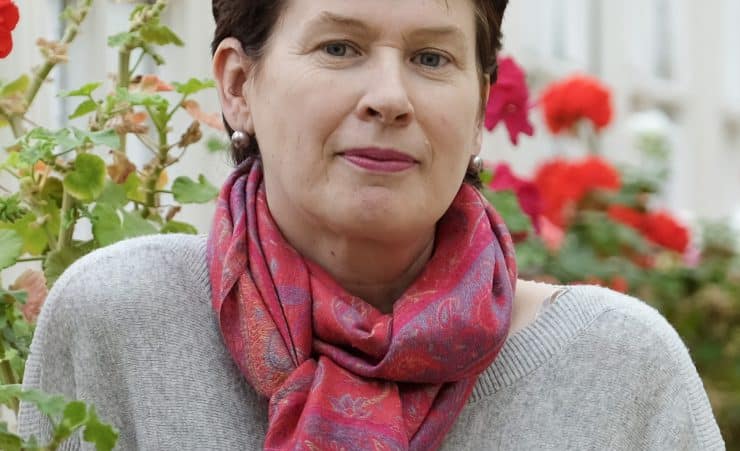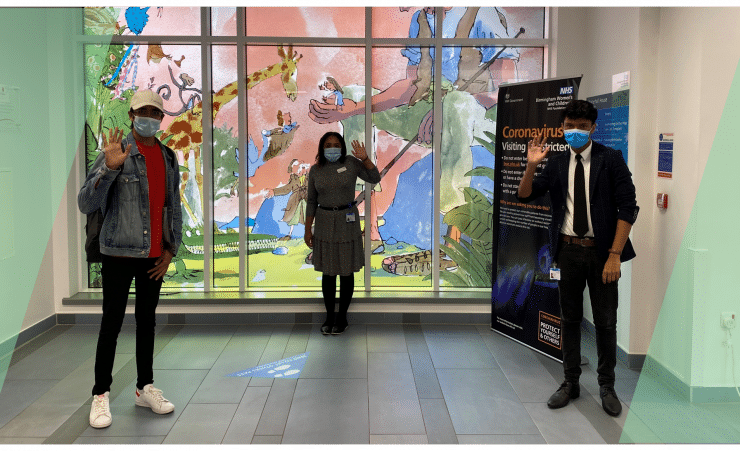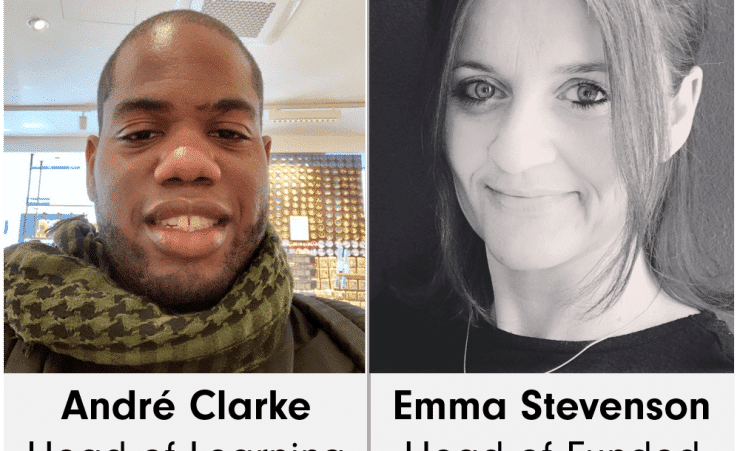
Covid-19 in 50 languages
How Sussex Interpreting Services adapted
So, you’re feeling ill, it’s the middle of the Covid-19 lockdown, you don’t speak English and your mobile phone is 12 years old. How do you manage?
That’s when you need an organisation like Sussex Interpreting Services (SIS), a registered charity that has been supporting people’s access to public services for over 25 years. Just before the virus hit, SIS was delivering around 1500 interpreting sessions a month for people whose first language was not English. The Covid-19 crisis added a whole new level of complexity to that. Overnight.
The average monoglot Brit who struggles to say ‘oui’ and ‘non’ on a weekend in Paris might think everyone in the UK speaks English. Yet, as Alice Evans’ report for the BBC suggests ‘four million people in England and Wales do not consider English to be their main language’ while there are ‘over 800,000 people who speak little or no English’ and 88 languages other than English are used as a principle language.
This points to the importance of voluntary action by organisations like SIS which, with 15 employees and a pool of 100 sessional linguists, delivered services in around 50 languages last year – sometimes in emergency situations. Their situation during the Covid-19 crisis mirrors some of what we’ve been hearing elsewhere. Services have had to re-adapt fast, funding was required quickly, with the minimum of fuss, and statutory partners had to be flexible.
Getting close up
But what’s the inside story? Let’s get granular. We spoke to Arran Evans, an SIS Director, about the challenges for the people they support, the design and funding difficulties SIS faced, and the flexible ways they responded.
For people with difficulties in English, obtaining GP appointments remained extremely difficult until the beginning of July. Many of SIS’s service users would normally drop in at the doctor’s surgery. However, the (understandable) growth of automated phone services – as an access point for public services – created barriers for certain groups. SIS worked alongside people who could not understand the correct selection to choose in the complex series of options offered by automated phone services.
Arran pointed out that ‘if people cannot understand the instructions and the system – they do not get access’. For mental health services, for example, it could take over 40 minutes in English to go through all the questions. One of SIS’s tasks was to explain the service users’ access needs to statutory services to which they were entitled.
Linkage to statutory services
In the early stages, strategic statutory partners were slow to respond. For example, GP surgeries closed, but people still needed their necessary or regular appointments. The consultation that a SIS interpreter would attend, alongside the service user, stopped overnight.
‘We can’t do what we do without collaboration with hundreds of people’ says Arran. SIS estimates that they lost 85% of work because appointments were cancelled, the translator had to go home, while, crucially, the person in need did not get diagnosed or treated.
Information needs presented another important dimension. Although every local community is different, large sections within BAME communities have stayed at home during the Covid-19 crisis. Language difficulties have meant that it was sometimes easier for them to obtain information about Covid from family members outside the UK. However, by the time such news arrived here the message may not have been clear, correct, or up-to-date. Arran explained that:
‘We spent lots of time auditing information – adapting it and posting it on our pages and translating – and distributing it to the council … The very best and useful information was what we got from Doctors of the World, not government at large which had done little on this issue.’
Agile organisational adaptions
In the midst of the Covid-19 crisis, Arran said, SIS had to fundamentally re-design their whole service almost overnight including the web site and phone service.‘We had to be very creative. We don’t have enormous resources.’
They designed a free platform that was working well with interpreters online. But there were still access challenges: many of SIS’s users did not even have an up-to-date working phone. SIS developed important and collaborative links to the Clinical Commissioning Group and doctor’s surgeries in cases where it was necessary for people to be shielding for medical reasons.
Arran pointed out:
‘The interpreters have been magnificent but SIS is now about half the size it was … It is exhausting to gain income from contracts. Funding dried up. We had to significantly use our reserves.’
Funding
Most funding streams that appeared during the crisis were exhausted before SIS could even apply. Meanwhile, some funders even thought SIS was not a voluntary organisation as their work was concerned with people’s access to statutory organisations!
Overall, Arran acknowledged that:
‘It has been emotionally draining in our team. We’ve been supporting people facing domestic violence or asylum seekers who are destitute or with long term illness.’
Dealing with this has had long term affects on staff and interpreters.
‘We’re not machines! And we’re not together physically like usual. We’re isolated at home and some colleagues are working and sleeping in one room. It’s very tough!’
Challenges
It was hard for a relatively small organisation like SIS to get local strategic partners to respond. However, as Arran explained:
‘We’re so proud of what we’ve achieved. But you can’t do that forever… It’s very draining. Do local authorities, government funders get it?’
This points to the vital role of independent voluntary organisations like SIS in identifying, and acting upon, social disadvantage. SIS have developed – and adapted – a model of working based on their closeness to the people they work with over the long term. And their small team have been agile in re-designing their entire service, in a national emergency, at short notice.
As Arran indicates: ‘We’ve worked right through the crisis. It’s been very tough. Really tough.’


